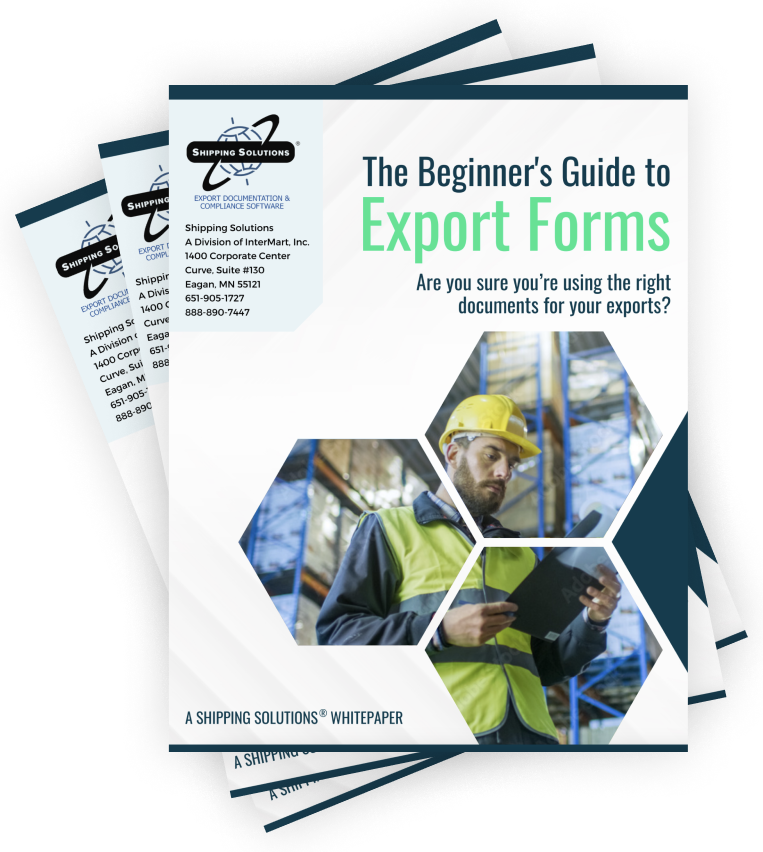The International Trade Blog Shipping Solutions Software
How to Complete a U.S. - Korea FTA Certificate of Origin
On: February 3, 2015 | By:  Lisa Nemer |
3 min. read
Lisa Nemer |
3 min. read
 Why do something twice when once will do? That's the philosophy behind the Shipping Solutions export documentation and compliance software, which eliminates the need to enter all your shipping information more than once before giving you the ability to print out more than two dozen standard export forms.
Why do something twice when once will do? That's the philosophy behind the Shipping Solutions export documentation and compliance software, which eliminates the need to enter all your shipping information more than once before giving you the ability to print out more than two dozen standard export forms.
For the basic forms, it is fairly obvious where to enter the majority of the data. For example, most of the Commercial Invoice data is entered on the program's EZ Start - Invoices screen. With some of the less common forms, such as the U.S. - Korea Free Trade Agreement (FTA) Certificate of Origin form, it might not be as obvious.
To easily and properly prepare the U.S. - Korea Certificate of Origin (click here for a sample), fill out the data shown below. Each bullet point lists a numbered box on the form, the information it requires, and the screens in the Shipping Solutions software where you enter the information.
- Box 1, Exporter—EZ Start - Contacts screen, Exporter section, Company, Address 1, Address 2, City, State, Postal Code, Country, Phone Number, Email Address, and Tax ID Number fields.
- Box 2, Blanket Period—EZ Start - NAFTA/Other Free Trade Agreement (FTA) screen, Blanket From and To dates.
- Box 3, Producer—EZ Start - NAFTA/Other FTA screen, Producer button, Company, Address 1, Address 2, City, State, Postal Code, Country, Phone Number, Email Address, and Tax ID Number fields.
- Box 4, Importer—EZ Start - NAFTA/Other FTA screen, Importer button, Company, Address 1, Address 2, City, State, Postal Code, Country, Phone Number, Email Address, and Tax ID Number fields.
- Box 5, Product ID/Serial No.—Auto eneratedby the software.
- Box 5, Description of Goods—EZ Start - Product Detail screen, Product Description field.
- Box 5, Quantity & Unit—EZ Start - Product Detail screen, Quantity and Sales Unit of Measure fields.
- Box 5, HS Tariff Classification Number—EZ Start - Product Detail screen, Schedule B/HTS Code field.
- Box 5, Preference Criteria—EZ Start - Product Detail screen, NAFTA/Other FTA section, Preference Criteria field.
- Box 5, Country of Origin—EZ Start - Product Detail screen, NAFTA/Other FTA section, Country of Origin field.
- Box 6, Remark—EZ Start - Invoices screen, Commercial Invoice Special Instructions field.
- Box 7, Authorized Signature—You can set the signature file in your profile by going to the Admin - Profile Settings screen. Watch this video on how to set-up signatures in Shipping Solutions so they will automatically appear on your documents. Follow the instructions in this blog post to get a nice looking signature image.
- Box 7, Address fields—EZ Start - NAFTA/Other FTA screen, Certify By button, Company, Contact First Name, Contact Last Name, Contact Title, Phone Number, Fax Number and Email Address fields.
- Box 7, Date —EZ Start - NAFTA/Other FTA screen, FTA Date field.
Keep in mind that by entering this information in Shipping Solutions for the U.S. - Korea FTA Certificate of Origin, you don't need to reenter the same information to complete your other export forms.

About the Author: Lisa Nemer
Lisa Nemer leads the customer service and finance teams at Shipping Solutions, a software company that develops and sells export document and compliance software targeted specifically at small and mid-sized U.S. companies that export. If you have ever called Shipping Solutions with a question or problem you've probably talked to Lisa! Prior to joining Shipping Solutions, Lisa spent 14 years in finance and technology-related jobs for a Fortune 500 company in Minneapolis.

